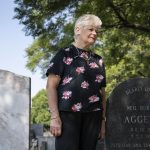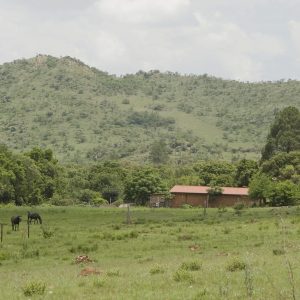Hoosen Haffejee inquest comes decades too late
The death of the Durban dentist at the hands of the apartheid police in 1977 profoundly shaped his family’s lives. Only two siblings are still alive, hoping to find out the truth.
Author:
17 August 2021

On the morning of Tuesday 2 August 1977, a slightly built man sporting a bushy moustache and wearing a neatly pressed powder-blue safari suit got into his car, an Alfa Romeo Alfasud, outside the Antelope Towers apartment block in Berea, Durban, where he lived.
Some time later, near the entrance to the public swimming pool in Asherville, he was pulled over by a convoy of vehicles driven by members of the police’s Security Branch. He was arrested and driven to the Brighton Beach police station. About 20 hours later, in the early hours of 3 August, the man’s dead body would be found hanging from the bars of a cell, a noose made from the trousers of his safari suit around his neck.
Hoosen Haffejee, a dentist, was 26 years old. The Security Branch members who had detained him would claim at an inquest held in March 1978 that his death was a suicide. They said it was brought on by guilt and fear after it was revealed to him that they had found documents in his flat advocating a socialist revolution. They told Haffejee they also knew he had been holding underground meetings at his flat, during which he had given instruction to fellow anti-apartheid activists on the making of bombs for use in the armed struggle.
The officers told the presiding magistrate, Trevor Blunden, that the estimated 60 bruises found on Haffejee’s body during a postmortem were the result of a struggle. The small man had offered significant resistance to their attempts to force him into the back seat of his car outside the Asherville pool.
Related article:
The Security Branch members were large men, built like rugby players, who by their own admission should have had no difficulties in putting a man weighing 49kg into the car. They also claimed that after they revealed the extent of the information they had obtained through recordings made using a “tomato bug” placed in his flat, Haffejee was taken to various locations in the Durban city centre to point them out to investigators.
According to their evidence, they continued their polite, non-violent interrogation of the dentist upon their return to Brighton Beach and did not use any force on him or see any marks or bruises on his body during the time he was with them. At about 8pm, he was taken to point out further places of interest at the Durban beachfront before returning to the station, where his interrogation continued until around midnight. After this, he was taken to a cell and left there with the instruction to spend the night thinking about what he had done and what the repercussions for him would be if he refused to cooperate.
When they returned to Brighton Beach on the morning of 3 August, the Security Branch officers who had been involved in his interrogation the night before were “shocked” to discover that Haffejee had committed suicide. It was even more surprising given that, according to evidence from police officers working in the cell block, he had been seen looking in good health and sitting on his bed at 3am during their regular patrol of the cells. When they returned an hour later, they found him dead.
A family in disbelief
Haffejee’s family had no knowledge of his arrest and only became aware of it on the morning of 3 August, when four white men walked into their shop in the dentist’s hometown of Pietermaritzburg and told his older brother Yusuf that he had committed suicide.
As he wrote in a letter to a friend later that month, Yusuf’s immediate reaction “was one of disbelief; I didn’t know whether I should cry or what”. Although Haffejee lived in Durban, he would make the journey to Pietermaritzburg every Friday to spend the weekends with his parents. He would return to Durban early on Monday mornings to work at King George V hospital in Springfield. His family had said goodbye to him that Monday and expected him to be back with them the following weekend.
His death would devastate his father Mohammed, who died a broken man in 1986. It would forever alter his mother Fathima, who became a withdrawn, pessimistic shadow of the optimistic, engaged women she had once been, Yusuf would later recall. She died in 2011.
Related article:
The quest for justice for Haffejee would occupy the remainder of Yusuf’s life. He spent decades trying to have the official finding of the 1978 inquest – that Haffejee had committed suicide and no one was to blame for his death – overturned. He appeared before the Truth and Reconciliation Commission (TRC) in 1996, where a new hearing was conducted on the basis of testimony from Mohun Deva Gopal, a former Security Branch officer.
Gopal testified that he had been present when Haffejee was arrested and witnessed fellow Security Branch officers James Taylor and PL du Toit severely and repeatedly assault and torture him during his interrogation. Taylor was subpoenaed by the TRC and denied all the allegations against him. Neither he nor Du Toit applied for amnesty for their role in the Haffejee matter and Gopal’s application for amnesty was denied. Yusuf died in 2009.
Reopening the inquest
In 2018, former justice minister Michael Masutha announced the reopening of the inquest into Haffejee’s death. His sister Sarah Lall told the Mail & Guardian that she and the family were “overwhelmed at the news” and could not wait for “formal court proceedings to commence”. Her excitement proved to be premature, however, as the investigation by the National Prosecuting Authority stalled. It was only after threats of legal action to compel a decision that national director of public prosecutions Shamila Batohi finally set a date for the hearing.
The inquest got under way in the high court in Pietermaritzburg on 17 August 2021, but none of the men directly responsible for his alleged assault and torture will be present. The last surviving member of his interrogation team, Taylor, died in August 2019.
For Haffejee’s remaining family members – Sarah and his younger brother Ismail – the next month will be difficult as the details of his political and private life and his tragic death will be revealed in detail before Judge Zaba Nkosi. It could include possibly uncomfortable details about his romantic life that, as was revealed during the original inquest, may have led to his investigation by the security police.
Related article:
According to media reports in 1978, the Security Branch was informed of Haffejee’s anti-apartheid political activities by a nurse at the King George V hospital with whom he had been having a relationship. The nurse, Matheevathine Govender (now Benjamin), was reportedly upset because Haffejee had been seeing another woman at the same time. This led her to betray him to the police, who began their surveillance of the dentist months before his arrest. It was also reported that she tried to commit suicide after she had learnt of Haffejee’s death.
Benjamin and Gopal are among the 30 witnesses on the list of those to give evidence at the new inquest.
The Sunday Times, which gleefully reported the story of the “pretty Durban nurse” who had betrayed Haffejee, said that interviews “with the doctor’s friends present a picture of a fun-loving doctor who was more interested in dating nurses than in politics”. However, unbeknown to his family and outside of the official structures of any political party, Haffejee was deeply interested and involved in politics.
The makings of a political conscience
Haffejee was born in Pietermaritzburg on 6 November 1950. After matriculating in 1966, he went to India to pursue his tertiary studies in science and dentistry and returned to South Africa only a decade later. After much difficulty getting a job because of racist employment practices under the apartheid regime, he was able to obtain a position at the King George V hospital. He had been working there for just under a year by the time of his death.
In a 2002 interview conducted for the University of Durban-Westville’s “Voices of Resistance” oral history project, Yusuf said his brother had seemed more politically conscious upon his return from India, often speaking about that country’s politics but rarely about South Africa or the ANC. As Yusuf observed, “the ANC as such has never claimed Hoosen and till today we can’t say with certainty … what his political affiliations were”.
This is something that the Haffejee family’s lawyer, Howard Varney, will spend some time pursuing during the coming days.
Related article:
Although his own political affiliations and activities are still the subject of much speculation among his family, Haffejee’s death had a significant impact on their political consciousness. Fathima, in particular, spent much of the rest of her life reading the newspapers and keeping an eye on the increasing number of reports of deaths in detention during the apartheid era.
As she wrote in a letter published in the Rand Daily Mail in November 1978: “Before my son’s death I was an ordinary uninformed housewife and mother. But since then I have begun to read. I am now aware of and very much interested in what is happening around me. The cruel and oppressing law of South Africa has not crushed the people of South Africa – it is in fact rearing a strong, determined and united black group.”
In another letter published in the Natal Mercury that year, Fathima wrote: “I think the time has arrived for us, the blacks, to pray that God will open a door to protect our destiny from the cruel injustice of the South African Security Police. I hope our prayers are answered before it is too late for us all. As a grieving mother I cannot forget this terrible ordeal; my heart will always cry for my son.”
A long wait for justice
When Haffejee was driven down the road that runs towards the Brighton Beach police station, it was called Old Gray Road. It was renamed Dr Hoosen Haffejee Road in 2007 in honour of the man for whom it proved to be the final path on which he would travel in his lifetime. Berg Street in his hometown of Pietermaritzburg had been likewise renamed in his honour in 2005.
Although his name may be forever memorialised through these and other public acknowledgments of his gruesome death, allegedly at the hands of the Security Branch, the truth of what happened to Haffejee has remained hidden from his family and the public for 44 years.
Related article:
As with the few other apartheid-era deaths that have resulted in newly reopened inquests in the past few years, it did not have to take this long. The much publicised political interference by members of the post-apartheid government into the prosecution of these cases is certainly a significant factor in the length of time it has taken and demonstrates the callous disregard shown to the family members of those who lost their lives.
It also means that whatever the outcome of the new inquest, those who were most likely responsible for Haffejee’s death will not be present to receive their punishment. At most, it will provide some closure to his brother and sister – and that is some comfort, however cold it may be.
The proceedings at the reopened inquest into the death of Hoosen Haffejee are live-streamed daily on the Facebook page of the Foundation for Human Rights.





